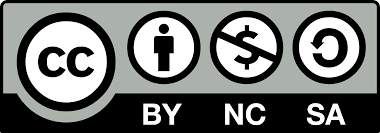Published 2019-01-10
Keywords
- education,
- archaeological heritage,
- History,
- learning,
- strategies
How to Cite
Abstract
In recent years, a growing concern has arisen in Mexico for the dissemination of the results of archaeological research, derived in part from the need to inform the population about the work of this profession in order to motivate the commitment of the society for the safeguarding of cultural heritage, but also partly because this task constitutes a surge in the theoretical currents of heritage communication worldwide. Indeed, although the big global organizations (for example the UNESCO), have shown clear signs of their concern for a long time for the care of the heritage towards the future in areas such as architecture (in various documents, such as the Venice Charter), natural resources (object of political ecology) and, of course, in the social sphere, this discourse has become more important in recent times, especially as a result of the systematic destruction of natural and cultural resources in all parts of the world. One of the ways that have been used for at least two decades in countries such as Spain, France, the Canary Islands, Colombia, Costa Rica and recently in Mexico to undertake this heritage communication has been to influence formal education; that is, the privileged area that constitutes the school for the transmission of knowledge - or better yet - the transmission of an awareness of the importance of knowing, understanding and conserving the cultural heritage understood in its broadest sense has been taken advantage of. This interest has arisen both from teachers linked to the teaching of history, as well as archaeologists who are managers and also communicators, concerned about the destruction of natural resources and notably the cultural ones, whose ignorance on the part of the general public places them in a situation of systematic vulnerability. Thus, the objective of this paper is to present a case study on what has been done in relation to heritage communication in the formal education and recreational education environment, within the framework of the research project Archeology, education and cultural heritage, led by whoever subscribes. For its presentation, the text has been divided into two parts. The first describes the approach of the aforementioned project and the stages it has gone through; In the second, the activities that have been carried out in the case study developed in middle and high school formal schools in La Piedad, Michoacán, are reported.


